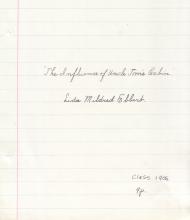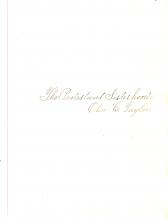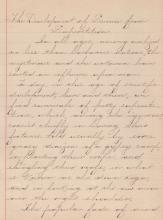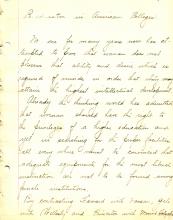Lida Mildred Ebbert's 1908 Essay "The Influence of Uncle Tom's Cabin"
In her essay titled "The Influence of Uncle Tom's Cabin," Lida Mildred Ebbert explored the great importance of the novel upon nineteenth- and twentieth-century Americans. She argued that "It is probable that no other book, except the Bible, has had such world-wide popularity and impact." Ebbert went on to discuss the author, Harriet Beecher Stowe, and the time in which the book was written.






